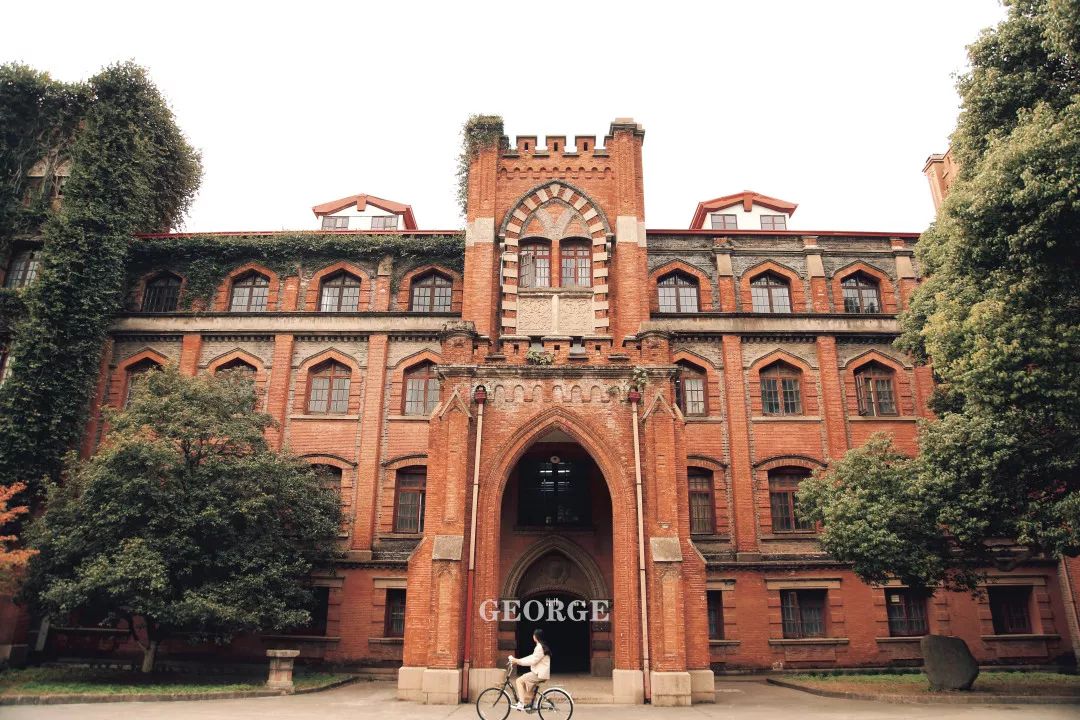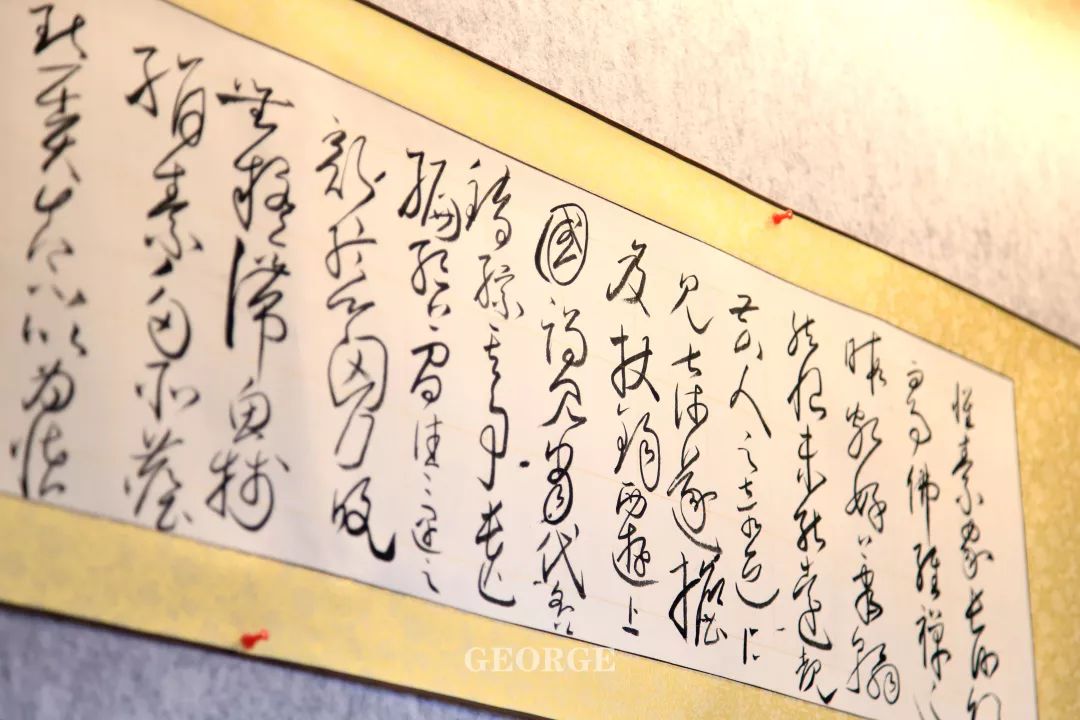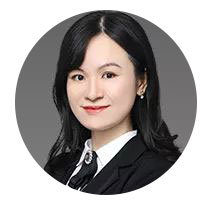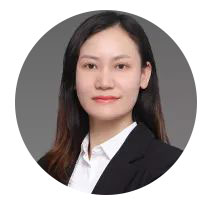12月亞太&北美SAT最全考情!閱讀、文法、寫(xiě)作、數(shù)學(xué)超詳細(xì)!
2019/12/19 11:06:25來(lái)源:互聯(lián)網(wǎng)作者:上海新航道
摘要:12月7日SAT考試結(jié)束,新航道上海學(xué)校SAT頻道的老師們帶來(lái)了熱乎乎的SAT考情回顧,希望對(duì)SAT考試的學(xué)員們有所幫助!
12月7日SAT考試結(jié)束,新航道上海學(xué)校SAT頻道的老師們帶來(lái)了熱乎乎的SAT考情回顧,希望對(duì)SAT考試的學(xué)員們有所幫助!
寫(xiě)作部分:12月亞太區(qū)考題
2019年12月SAT亞太區(qū)寫(xiě)作考題所選取的文章為Steve Lipsher于2013年在The Denver Post 上發(fā)表的“ The value of professional photographers can’t be overstated(原文附后)”,其主要觀點(diǎn)為:專業(yè)攝影師的價(jià)值是不容忽視的。
文章約835詞,屬于正常范圍,雖然有一定數(shù)目的稍難詞匯,但總體不難理解,寫(xiě)作技巧分析方面也沒(méi)有太多障礙,屬于中等難度。
這篇文章與College Board發(fā)布的SAT Study Guide 2020里第157頁(yè)Sample Passage 1(選文1)關(guān)注的問(wèn)題有一定相似性。SAT Study Guide 2020上的文章作者是Peter S. Goodman,題目是“Foreign News at a Crisis Point”,于2013年發(fā)表于TheHuffingtonPost.com。
Goodman指出,美國(guó)報(bào)刊雜志上外國(guó)新聞的占比急劇下滑,同時(shí),新聞機(jī)構(gòu)的專業(yè)國(guó)際新聞?dòng)浾摺Ⅰv外辦公點(diǎn)的數(shù)量也都大幅下降,這些趨勢(shì)都會(huì)帶來(lái)負(fù)面影響。

值得一提的是,上述兩篇文章都提到了“citizen journalists(公民記者)”,這是什么概念呢?
請(qǐng)看《中國(guó)日?qǐng)?bào)》的報(bào)道:
Citizen journalism就是“公民新聞”,指從新聞的采訪寫(xiě)作,到編輯發(fā)布,都不假手于專業(yè)記者或編輯,完全由“讀者”自己采寫(xiě),這些讀者則被稱為citizen journalist(公民記者)。全世界第一位citizen journalism當(dāng)屬1998年在其個(gè)人博客中對(duì)克林頓Zip Gate性丑聞曝光的美國(guó)人德拉吉。
公民新聞相較于傳統(tǒng)新聞的優(yōu)點(diǎn)在于可以在第一時(shí)間在現(xiàn)場(chǎng)進(jìn)行real-time reporting(實(shí)時(shí)報(bào)道)。相較mainstream media(主流媒體)而言,也多了更多的vividness(生動(dòng)性)。在突發(fā)事件的報(bào)道中,citizen journalism正在發(fā)揮越來(lái)越重要的作用。
然而,SAT今年12月亞太考題與SAT Study Guide 2020上的“Foreign News at a Crisis Point”都深刻地分析了過(guò)于依賴citizen journalists的不良后果。
寫(xiě)作技巧分析
不難看出,文章作者Steve Lipsher用了包括但不限于以下幾種手法來(lái)增強(qiáng)自己觀點(diǎn)的說(shuō)服力(原文附后):
技巧一:舉例子(exemplification)
例如,文章開(kāi)篇提到的Bill Linfield是一個(gè)業(yè)余的攝影師,他免費(fèi)或接近免費(fèi)的投稿一旦被報(bào)紙或者電視等媒體接受,就意味著專業(yè)的新聞攝影師失去了相應(yīng)的展現(xiàn)他們作品的機(jī)會(huì)。
這就是作者用來(lái)說(shuō)服讀者的例子之一,以證明“劣幣驅(qū)逐良幣”的這一道理(嚴(yán)格來(lái)講,是非專業(yè)性的作品擠壓了專業(yè)的、需要精心打磨推敲的、更優(yōu)質(zhì)的作品的存在空間)。
技巧二:引用(quotation或者citation)
在描述非專業(yè)作品帶來(lái)的負(fù)面影響時(shí),文章作者引用了電視臺(tái)9News的主持人Kyle Clark的評(píng)價(jià):“Why is it that every time it snows that we whip out photos of our patio sets like we’re showing off baby photos of our kids? Is that really the best we can do?...Let’s be more original the next time the snow flies.”
很明顯,Clark在抱怨,citizen journalists們,即普羅大眾們,非專業(yè)的新聞攝影師們,沒(méi)能夠拍出很精美、有原創(chuàng)性的雪景照。文章作者借由這樣一段稍長(zhǎng)的直接引用內(nèi)容,來(lái)加強(qiáng)自己的觀點(diǎn)—流失了專業(yè)的攝影師,也就流失了好的創(chuàng)意、好的藝術(shù)作品,十分可惜。
技巧三:邏輯說(shuō)理(reasoning)
文章一開(kāi)始的切入點(diǎn)是一位有極高拍照熱情的非專業(yè)攝影師,他的作品被Summit Daily News免費(fèi)使用,乍看上去,這類事件對(duì)社會(huì)影響較為有限,而且影響仿佛僅限于當(dāng)?shù)?Summit County)。
但是作者巧妙地一步步鋪陳開(kāi)來(lái),讓讀者逐步意識(shí)到,這個(gè)問(wèn)題的影響實(shí)際遠(yuǎn)比開(kāi)頭所描述的的范圍大很多。
比如在第8段,他指出”O(jiān)f course, the issue isn’t limited to Summit County.”讀者們便能得知,全國(guó)范圍內(nèi)的報(bào)紙幾乎都存在同樣的問(wèn)題。
接下來(lái),在第11段,作者說(shuō):”And it’s not just newspapers.”讀者開(kāi)始發(fā)現(xiàn),在其它的媒體領(lǐng)域,不僅僅是報(bào)紙,專業(yè)的新聞攝影師生存之地也在不斷被壓縮。
接近文章末尾,第17段,作者不再只是描述全國(guó)報(bào)紙、電視等相關(guān)的專業(yè)攝影師,而是提到:
“Any professional photographer these days can recount being asked to take photos for free or to accept insultingly low fees”。也就是說(shuō),在日常生活的方方面面,專業(yè)攝影師的價(jià)值都被低估了,他們付出了勞動(dòng)和心血,卻沒(méi)有獲得相應(yīng)的報(bào)酬。
就這樣一步步,作者把現(xiàn)在專業(yè)攝影師所面對(duì)的巨大壓力一步步呈現(xiàn)、講述給讀者。
The value of professional photographers can’t be overstated
by Steve Lipsher
1.Bill Linfield is a friend, a great guy and a superb amateur photographer who takes pride in his exemplary wildlife and landscape photos.
2. So why is he persona non grata among the professional photographers in Summit County?
3. Because Linfield freely — and that’s the appropriate word here — shares his work with the Summit Daily News, which never replaced its beloved longtime photographer, Mark Fox, upon his retirement and which instead relies upon the kindness of strangers for its Page 1 photos.
4. “I take photos daily because I have a passion for it and enjoy sharing the beauty of where I am able to live and play,” Linfield said. “Besides, if I don’t share my photos, why am I taking them?”
5. Local professional photographers lament that Linfield and others offering their work without compensation are enabling the paper to devalue photography, which they contend remains an integral part of newspaper storytelling.
6. Matt Lit, a Summit County photography educator at Colorado Mountain College and a former news photographer, praises Linfield’s work as “quite stunning” but fears it is another step in the inexorable march toward the demise of professional photojournalism. Good photography lures in readers who, as a result, see the advertising that supports the news outlet, he said.
7. “Once upon a time, I used to earn money selling my photos,” Lit said. “If I sold a photo to a television station to use on their broadcast, that’s air time and that’s valuable stuff. What’s the equivalent ad rate for that amount of air time or for that amount of newspaper space?”
8. Of course, the issue isn’t limited to Summit County. Newspapers all across the country have been cutting photographer positions, with the Chicago Sun-Times in May taking the extreme position of eliminating its entire full-time photo staff, then saying four of the 28 will be rehired. (The Denver Post has not been immune to industry-wide downsizing, unfortunately, but it still retains the core of its top-drawer photographers, including two-time Pulitzer Prize winner Craig F. Walker.)
9. Last month, David Becker of PetaPixel pointed out that the annual American Society of News Editors newsroom census, compared year over year, shows that U.S. newspapers are employing 43 percent fewer photographers, videographers and artists than they were in 2000.
10. In many cases, media outlets now are asking reporters to take cameras with them on assignments or simply relying on “crowd sourcing,” in which “citizen journalists” — basically anyone with an iPhone in his pocket — can snap pictures and willingly share them.
11. And it’s not just newspapers.
12. Linfield’s work also has appeared periodically on 9News, where anchor Kyle Clark recently had the audacity to complain in a special on-air editorial that readers were sending in boring photos depicting snowfall on patio furniture.
13. “Why is it that every time it snows that we whip out photos of our patio sets like we’re showing off baby photos of our kids? Is that really the best we can do?” he grumbled. “We live in one of the most beautiful spots on Earth, but we point our cameras toward the back porch … . Let’s be more original the next time the snow flies.”
14. That’s right: Clark is protesting the quality of free photos that 9News receives from amateurs.
15. Summit County photographer friend of mine, Tim Faust, doesn’t fault the media for taking advantage of free photography but does think that complaints like those raised by Clark are a case of beggars can’t be choosers.
16. “It is supply and demand,” Faust said. “If people are willing to provide free images, then why should media pay for them? However, I take issue with a media outlet complaining about the lack of quality of their free images.”
17. Any professional photographer these days can recount being asked to take photos for free or to accept insultingly low fees: friends want a “quick” portrait, businesses request “cheap” images for their websites and brochures, wedding parties can’t understand why they need to pay so much for what they don’t realize typically amounts to more than just a day’s labor.
18. Yet just a few days ago, we were all reacquainted with some indelible 50-year-old images from newspapers that remind us how powerful good photography can be in telling a story: Jackie Kennedy standing stoically in her blood-stained pink dress and pillbox hat as LBJ took the oath of office on that crowded airplane, Ruby shooting Oswald, John-John saluting his father’s coffin.
19. It is a shame that professional photography is being so undervalued today, and that’s made even worse when media outlets exacerbate the impression that it’s not worth paying for good photos.
寫(xiě)作部分:12月北美考題
2019年12月SAT北美卷寫(xiě)作考題所選取的文章為Susan Wojcicki(時(shí)任著名視頻網(wǎng)站YouTube CEO)于2014年在The Wall Street Journal 上發(fā)表的“Paid Maternity Leave Is Good for Business(原文附后)”其主要觀點(diǎn)為:“帶薪產(chǎn)假制度對(duì)于女性休假者本人、她的家庭、她所服務(wù)的公司都會(huì)產(chǎn)生積極的影響。”

原文章長(zhǎng)約872詞,總體通俗易懂,寫(xiě)作技巧的辨識(shí)方面屬于中低難度。
寫(xiě)作技巧分析
Susan Wojcicki用了包括但不限于以下幾種手法來(lái)增強(qiáng)自己觀點(diǎn)的說(shuō)服力(原文附后):
技巧一:個(gè)人經(jīng)歷(personal experience/anecdote)
文章第一段描述了作者本人剛加入Google時(shí)的情況。她曾將車庫(kù)租給謝爾蓋·布林和Google的另一位創(chuàng)始人拉里·佩吉,作為辦公場(chǎng)所。1999年,她加入了這個(gè)當(dāng)時(shí)只有15個(gè)雇員而且并未開(kāi)始盈利的公司,那時(shí)候,她正懷著自己的第一個(gè)寶寶。
作為公司成長(zhǎng)的見(jiàn)證者和推動(dòng)者,在2014年,寫(xiě)這篇文章的時(shí)候,她已經(jīng)是鼎鼎有名的YouTube視頻網(wǎng)站的CEO(YouTube歸屬Google旗下),并且身懷她的第五個(gè)小孩。
她每次懷孕都享受到了帶薪產(chǎn)假,而且?guī)疆a(chǎn)假的時(shí)間逐步增長(zhǎng)。作為親歷者,她并不是以一個(gè)大權(quán)在握的企業(yè)高管的角度來(lái)評(píng)判這個(gè)制度,而是從一個(gè)普通的女性雇員的角度來(lái)闡述帶薪產(chǎn)假給女性帶來(lái)的好處,以此來(lái)呼吁美國(guó)各州設(shè)置帶薪產(chǎn)假這一人性化管理制度,顯得十分誠(chéng)懇、可信。
技巧二:對(duì)調(diào)查或研究結(jié)果等的引用(citation of research and surveys)
文中很頻繁地引用了調(diào)查或研究結(jié)果,選取的調(diào)查或研究結(jié)果來(lái)自于公眾信任的信息發(fā)布方,即權(quán)威機(jī)構(gòu),為自己的觀點(diǎn)提供了強(qiáng)有力的支撐。
比如,在第四段,作者引用了聯(lián)合國(guó)的一項(xiàng)調(diào)查,她提到:“According to a survey released in May by the United Nations’International Labor Organization, the U.S. is the only country in the developed world that doesn’t offer government-mandated paid maternity leave.”以及第五段,她引用了美國(guó)勞工部的數(shù)據(jù), “According to the Labor Department, that patchwork of corporate and state benefits covers only 12% of private workers. ”
這兩處引用都來(lái)自于非常專業(yè)的機(jī)構(gòu),從引用的這幾句來(lái)看,讀者們了解到這樣一個(gè)事實(shí):美國(guó)是發(fā)達(dá)國(guó)家里唯一一個(gè)還沒(méi)有實(shí)行強(qiáng)制帶薪休假政策的國(guó)家;能享受到公司或者工廠帶薪休產(chǎn)假這一福利的雇員占比是很小的。
引用調(diào)查和研究結(jié)果的例子在本文中可以說(shuō)是非常豐富,從第六段至第八段,每一段都能找到對(duì)應(yīng)的部分去例舉和闡述。
技巧三:邏輯說(shuō)理(reasoning)
較為明顯的是,作者用了對(duì)比(contrast),來(lái)說(shuō)明帶薪休假的好處: “Mothers were able to take the time they needed to bond with their babies and return to their jobs feeling confident and ready. And it’s much better for Google’s bottom line—to avoid costly turnover, and to retain the valued expertise, skills and perspective of our employees who are mothers.”
這句話說(shuō)明,如果這種人性化的制度不執(zhí)行到位,那么公司的雇員流失率將會(huì)非常大,給公司帶來(lái)的損失可能是高昂的。但相對(duì)而言,實(shí)施這項(xiàng)制度將增長(zhǎng)女性工作的積極性,從而對(duì)公司本身產(chǎn)生明顯有利的結(jié)果。
Paid Maternity Leave Is Good for Business
by Susan Wojcicki
1. I was Google’s first employee to go on maternity leave. In 1999, I joined the startup that founders Larry Page and Sergey Brin had recently started in my garage. I was four months pregnant. At the time the company had no revenue and only 15 employees, almost all of whom were male. Joining a startup pregnant with my first child was risky, but Larry and Sergey assured me I’d have their support.
2. This month, I’ll go on maternity leave once again—my fifth time—joining the nearly 5,000 women who have done so since I joined Google. And though I’m now CEO of YouTube (which is owned by Google), I’ll be entitled to the same benefits as every single woman at the company who has a baby: 18 weeks of paid maternity leave.
3. Having experienced how valuable paid maternity leave is to me, my family and my career, I never thought of it as a privilege. But the sad truth is that paid maternity leave is rare in America, and the U.S. lags behind the rest of the world in providing for the needs of pregnant women and new mothers.
4. According to a survey released in May by the United Nations’ International Labor Organization, the U.S. is the only country in the developed world that doesn’t offer government-mandated paid maternity leave. Every other developed country offers paid maternity leave benefits through social-security programs, so businesses don’t have to shoulder the entire cost. Paid maternity leave isn’t just a First World perk—the U.S. is one of only two countries of the 185 surveyed that does not offer it. The other is Papua New Guinea.
5. There are two ways women in America can receive paid maternity leave. They can work for a generous employer that provides it as a benefit. Or they can live in one of the few states—California, Hawaii, New Jersey, New York and Rhode Island—that have publicly funded paid-maternity-leave laws. According to the Labor Department, that patchwork of corporate and state benefits covers only 12% of private workers. Low-wage earners, those in the bottom income quartile, have it much worse: only 5% get any paid maternity leave. The Family and Medical Leave Act of 1993 is a step in the right direction, but it is unpaid and doesn’t cover half the working women in the U.S.
6. In study after study, the ILO and other labor and health organizations have shown how harmful a lack of paid maternity leave can be for mothers and their babies. Many times when faced with insufficient maternity leave, mothers choose to drop out of the workforce, leading to a considerable loss of income during a woman’s most productive years. Or it can force a woman back to work too quickly, with adverse effects on her and her child’s health.
7. A quarter of all women in the U.S. return to work fewer than 10 days after giving birth, leaving them less time to bond with their children, making breast-feeding more difficult and increasing their risk of postpartum depression. According to the American Academy of Pediatrics, suboptimal breast-feeding causes higher rates of infant illness and hospitalization that cost billions of dollars annually.
8. Paid maternity leave is also good for business. After California instituted paid medical leave, a survey in 2011 by the Center for Economic and Policy Research found that 91% of employers said the policy either boosted profits or had no effect. They also noted improved productivity, higher morale and reduced turnover.
9. That last point is one we’ve seen at Google. When we increased paid maternity leave to 18 from 12 weeks in 2007, the rate at which new moms left Google fell by 50%. (We also increased paternity leave to 12 weeks from seven, as we know that also has a positive effect on families and our business.) Mothers were able to take the time they needed to bond with their babies and return to their jobs feeling confident and ready. And it’s much better for Google’s bottom line—to avoid costly turnover, and to retain the valued expertise, skills and perspective of our employees who are mothers.
10. Best of all, mothers come back to the workforce with new insights. I know from experience that being a mother gave me a broader sense of purpose, more compassion and a better ability to prioritize and get things done efficiently. It also helped me understand the specific needs and concerns of mothers, who make most household spending decisions and control more than $2 trillion of purchasing power in the U.S.
11. I’ve been lucky to have the support of a company that values motherhood as much as Google. And I’ve been lucky to live in a state like California that supports working mothers. But support for motherhood shouldn’t be a matter of luck; it should be a matter of course. Paid maternity leave is good for mothers, families and business. America should have the good sense to join nearly every other country in providing it.
數(shù)學(xué)部分:亞太&北美區(qū)
亞太區(qū)
出乎意料的,亞太區(qū)的考試內(nèi)容繼續(xù)重復(fù)美國(guó)本土今年六月份考試的某一罕見(jiàn)版本試卷內(nèi)容(NAPH308),分?jǐn)?shù)曲線會(huì)大致呈現(xiàn)以下規(guī)律:
Errors Score
-1 770
-2 760 or 750
-3 740
-4 730
-5 710
-6 700
-7 690
-8 690
相較十月份的考情,十二月份數(shù)學(xué)兩部分的難度均有下降。其中非計(jì)算器部分難度下降幅度較大,除了在本份試卷各部分中難度最低,也使得其難度明顯弱于計(jì)算器部分;相較于六月份的其他版本試卷數(shù)學(xué)兩部分而言非計(jì)算器部分難度幾近墊底,而計(jì)算器部分難度中等。
除了考察常規(guī)知識(shí)點(diǎn)外,令學(xué)生印象深刻的考點(diǎn)還有:關(guān)于高次方程的解與相應(yīng)函數(shù)圖像與橫軸交點(diǎn)的關(guān)系、多個(gè)函數(shù)極值的關(guān)系、指數(shù)函數(shù)的平移、一次方程組的求解、圓的解析幾何表達(dá)式。
北美區(qū)
北美區(qū)周六的考試內(nèi)容也在重復(fù)美國(guó)本土今年六月份考試的某一罕見(jiàn)版本試卷內(nèi)容(NAPC303);非計(jì)算器部分除了在本份試卷各部分中難度最低,也使得其難度明顯弱于計(jì)算器部分;相較于六月份的其他版本試卷數(shù)學(xué)兩部分而言非計(jì)算器部分難度甚至墊底,而計(jì)算器部分難度中等。
除了考察常規(guī)知識(shí)點(diǎn)外,令學(xué)生印象深刻的考點(diǎn)還有:二次函數(shù)的頂點(diǎn)式、線性/指數(shù)混合不等式的取值推斷、三角函數(shù)計(jì)算、使一次方程有無(wú)窮解的條件、弧度制計(jì)算。

文法部分:亞太區(qū)
本次12月7日結(jié)束的SAT亞太卷的語(yǔ)法難度中等偏上, 相較近幾次考試難度有所上升. 雖然考試的題型比較常規(guī),篇章理解題目的增加加高了對(duì)考生理解文章細(xì)節(jié)要求, 總體時(shí)間比較緊迫。
本次考試的考點(diǎn)比較常規(guī),考點(diǎn)搭配比較均衡, 基本沒(méi)有出現(xiàn)新奇特的考點(diǎn)。但是這次考試對(duì)細(xì)節(jié)和文章理解的要求比較高,這就使得考試的難度處在中等偏上。
篇章內(nèi)容
Passage 1 Location matters
生物學(xué)家研究稀有物種大陸龜?shù)倪^(guò)程中發(fā)現(xiàn)它的行為與我們傳統(tǒng)認(rèn)知的偏差,之前只研究了小區(qū)域范圍的。但是經(jīng)過(guò)長(zhǎng)期觀察,這樣結(jié)果是不科學(xué)的。只有多區(qū)域調(diào)查才能發(fā)現(xiàn)此類物種其實(shí)是活動(dòng)范圍比較大并且本身很活躍的。為了讓研究的結(jié)論更科學(xué),生態(tài)學(xué)家們對(duì)多個(gè)區(qū)域同時(shí)研究,最終得出更加準(zhǔn)確的結(jié)論。
Passage 2 Hip Hop meets native American tradition
與印第安傳統(tǒng)文章大意概述Hip-Hop和印第安文化混搭,能擦出怎樣的火花?這篇文章主要講述了一個(gè)印第安小伙子把自己的民族文化與Hip-Hop的嘻哈風(fēng)結(jié)合在一起,唱出了自己的特征,一方面?zhèn)鞑チ擞〉诎参幕硪环矫嬉舱蔑@了自己的個(gè)性。
Passage 3 UNCLOS and the arctic
文章講述氣候變暖北極的冰層融化,裸露了大量?jī)鐾梁屯恋兀鼈兊拈_(kāi)發(fā)利用出現(xiàn)了爭(zhēng)議。北極圈附近國(guó)家也開(kāi)始爭(zhēng)相行動(dòng),北冰洋大陸架的探索工作也是如火如荼地展開(kāi),不可避免的出現(xiàn)了爭(zhēng)議。UNCLOS法案規(guī)定該區(qū)域內(nèi)的自然資源歸屬于大陸架所屬國(guó)家所有,平息了爭(zhēng)議。
Passage 4 A clothes career
主要講述服裝設(shè)計(jì)師的商業(yè)模式和發(fā)展。Jason Wu為女明星制作的頒獎(jiǎng)典禮的禮服精美華麗,設(shè)計(jì)理念得到了大家認(rèn)同,從而名聲大噪,自己的品牌的發(fā)展也這個(gè)品牌也漸漸進(jìn)入時(shí)尚界的視野,名聲大噪,欣欣向榮。Jason Wu的事例揭示了在當(dāng)今社會(huì),要想取得斐然成績(jī),一方面要有真才實(shí)學(xué),另一方面還要學(xué)會(huì)營(yíng)銷自己。
2020年備考建議
1夯實(shí)基礎(chǔ),重點(diǎn)復(fù)習(xí)句子結(jié)構(gòu), 主謂一致, 名詞所有格及標(biāo)點(diǎn)(逗號(hào), 破折號(hào), 括號(hào))等高頻的考點(diǎn)。
目前難點(diǎn)集中在標(biāo)點(diǎn)題和動(dòng)詞題, 題型常規(guī)但對(duì)細(xì)節(jié)要求較高, 科技文中在一些專有名詞上設(shè)計(jì)標(biāo)點(diǎn)題, 對(duì)考生理解文本含義的要求較高。
2 篇章題方面,主要考察論點(diǎn)論據(jù)間的對(duì)應(yīng)關(guān)系, 文章主旨題, 合并句子題, 句子排序題及簡(jiǎn)潔性原則等. 其中文章主旨題和論點(diǎn)論據(jù)的對(duì)應(yīng)關(guān)系題目多次出現(xiàn)。
篇章題考察的重點(diǎn)放在對(duì)文本的理解上, 體現(xiàn)在文章段落結(jié)構(gòu)和主旨以及論點(diǎn)論據(jù)對(duì)應(yīng)關(guān)系, 考生必須在對(duì)文章和段落結(jié)構(gòu)有清晰的把握的前提下, 才能在有限的時(shí)間內(nèi)做對(duì)題目。
閱讀部分:亞太&北美區(qū)
亞太閱讀部分
Passage 1 文學(xué)
The Inheritance of Exile: Stories from South Philly by Susan Muaddi Darraj
女主Siham與老公Nader從耶路撒冷來(lái)到美國(guó)費(fèi)城,樂(lè)于探索新家周圍的環(huán)境。這里街道布置得井然有序,人來(lái)人往。在這里居住也有優(yōu)點(diǎn),就是這里的意大利市場(chǎng)可以買到想買的所有的東西,從西紅柿到咖啡豆再到浴巾,一應(yīng)俱全。意大利市場(chǎng)很像耶路撒冷的集市,遍布商品和小販的叫賣聲,但和耶路撒冷不同的是,這里不能砍價(jià)。
Siham回憶與老公Nader的戀愛(ài)故事。同樣都是買了個(gè)錢包,她花了8塊,而Nader花了14塊,Nader被她砍價(jià)的功力吸引,在一定催化劑的作用下發(fā)生了化學(xué)反應(yīng),進(jìn)而追求她。在她的眼中,Nader只不過(guò)是個(gè)美籍阿拉伯暴發(fā)戶而已,當(dāng)然在一系列互動(dòng)之后,在Nader討好她的家人之后,比如夸獎(jiǎng)她媽媽做的辣辣炸豆腐丸子很好吃,做的酸奶很好喝,還讓她的小妹妹騎在他脖子上。Nader成功的追到了她。由于Siham家鄉(xiāng)經(jīng)濟(jì)下滑得厲害,她最后帶著全家人移民到了美國(guó)。
Passage 2 歷史雙篇
1 Address in New York City at the Cornerstone Laying of the United Nations Building
2 Some Reflections on Peace in Our Time
第一篇文章選自美國(guó)總統(tǒng)杜魯門在1949年參加聯(lián)合國(guó)奠基儀式的演講,表達(dá)了建立聯(lián)合國(guó)的目的在于維護(hù)世界和平、解決國(guó)際爭(zhēng)端以及為各個(gè)國(guó)家樹(shù)立了公平和正義的標(biāo)桿。同時(shí)也表達(dá)了致力于維護(hù)人權(quán)的決心。
聯(lián)合國(guó)總部是世界上最重要的建筑群,因?yàn)樗笳髦鴮?duì)和平和美好生活的向往。我們美國(guó)人為聯(lián)合國(guó)總部設(shè)立在美國(guó)感到無(wú)比自豪,奠基儀式象征著聯(lián)合國(guó)的發(fā)展邁入了新的歷史階段。它象征著聯(lián)合國(guó)組織充滿活力、穩(wěn)步發(fā)展,將高效的處理、解決問(wèn)題。它象征著全世界人民的希望與理想。我們希望最終每個(gè)國(guó)家都成為聯(lián)合國(guó)合格的、忠實(shí)的成員國(guó)。
聯(lián)合國(guó)憲章很清晰的展示了我們解決國(guó)際問(wèn)題的決心。它為所有國(guó)家設(shè)定了人權(quán)和公正的標(biāo)準(zhǔn)。這些標(biāo)準(zhǔn)不容忽視與違背。聯(lián)合國(guó)憲章非常重視保護(hù)人權(quán),并且各個(gè)成員國(guó)也意識(shí)到了保護(hù)人權(quán)對(duì)于政治、經(jīng)濟(jì)和社會(huì)發(fā)展的重要性。
聯(lián)合國(guó)建立和平世界的另外一個(gè)手段是促進(jìn)經(jīng)濟(jì)發(fā)展。因此,我(杜魯門總統(tǒng))敦促盡最大努力利用現(xiàn)代技術(shù)與投資促進(jìn)貧困地區(qū)發(fā)展。
第二篇文章選自美國(guó)政治學(xué)家拉爾夫·本奇的演講,其主要觀點(diǎn)為聯(lián)合國(guó)反映了人類關(guān)系的弱點(diǎn)及優(yōu)秀的品質(zhì)。因此,聯(lián)合國(guó)有其優(yōu)勢(shì)也有其劣勢(shì),它很強(qiáng)大,同時(shí)也很懦弱,它例行職責(zé)的能力受到了很多因素的制約,比如國(guó)家主權(quán),但其機(jī)動(dòng)的靈活性也順應(yīng)了國(guó)與國(guó)之間的紛爭(zhēng),并在持續(xù)發(fā)揮其作用。
聯(lián)合國(guó)建立的宗旨是希望五個(gè)超級(jí)強(qiáng)國(guó)和諧一致的為建立更好的世界秩序努力。期望目前東西方及冷戰(zhàn)的僵局結(jié)束。因?yàn)槁?lián)合國(guó)的性質(zhì),每個(gè)成員國(guó)的行動(dòng)都是依照自己的意愿,這使得聯(lián)合國(guó)的行動(dòng)力受到了限制。但盡管如此,聯(lián)合國(guó)還是作為一個(gè)靈活的組織在國(guó)際間有效的發(fā)揮自己的作用。
Passage 3 科學(xué)文章
Oxygen: The Molecule that Made the World
文章開(kāi)頭介紹出Carboniferous(石炭紀(jì))有些巨型生物giants,作者猜測(cè)可能跟氧氣水平有關(guān),但缺乏現(xiàn)代生態(tài)學(xué)證據(jù)。傳統(tǒng)觀點(diǎn)認(rèn)為polar gigantism是由于體型和溫度的反比關(guān)系造成的,但是這么直接的關(guān)系無(wú)法很好解釋polar gigantism。
隨后科學(xué)家提出了一個(gè)新的觀點(diǎn),即真正的反比關(guān)系不是體型和溫度,而是體型和含氧量。隨后研究證實(shí)了確實(shí)是這個(gè)關(guān)系,最后文章指出若大氣變暖,會(huì)造成溫度上升含氧量降低,amphipods動(dòng)物面臨生存風(fēng)險(xiǎn)。
Passage4 社科文章
Democracy for Realists:Why Elections Do Not Produce Responsive Government
文章主要講述美國(guó)總統(tǒng)選舉對(duì)經(jīng)濟(jì)的影響。強(qiáng)調(diào)選民缺乏個(gè)體理性和政治信息,依賴群體/黨派認(rèn)同反向形成政治觀點(diǎn)。選民往往會(huì)受到經(jīng)濟(jì)波動(dòng)的影響。
曾有學(xué)者認(rèn)為選民的目光短淺會(huì)引發(fā)political business cycle,即在任總統(tǒng)想激發(fā)經(jīng)濟(jì)增長(zhǎng),從而產(chǎn)生不良的社會(huì)影響。但大量研究證實(shí)由于多種原因,兩者關(guān)系并沒(méi)有這么清晰。
其后研究人員想要證實(shí)經(jīng)濟(jì)表現(xiàn)是否會(huì)因?yàn)樵谌慰偨y(tǒng)聽(tīng)從目光短淺的選民所受影響,結(jié)果是electoral cycle與收入增長(zhǎng)的關(guān)系更大,因?yàn)檫x民對(duì)收入增長(zhǎng)的反應(yīng)更強(qiáng)烈,而且收入增長(zhǎng)更容易被操控。
Passage 5 科學(xué)文章
The Myth of Antioxidants
本次最后一篇科學(xué)文章主要闡述關(guān)于衰老的問(wèn)題。關(guān)于衰老的傳統(tǒng)觀點(diǎn)認(rèn)為,衰老的機(jī)理是由于體內(nèi)自由基的氧化導(dǎo)致細(xì)胞損害從而引發(fā)衰老。但是一個(gè)科學(xué)家G的實(shí)驗(yàn)卻發(fā)現(xiàn)促進(jìn)氧化后的蟲(chóng)子并沒(méi)有加快死亡,他們的壽命和正常蟲(chóng)子一樣。
其他科學(xué)家也發(fā)現(xiàn)了相似的情況,以嚙齒類動(dòng)物里最長(zhǎng)壽的裸鼴鼠為例,該物種生下來(lái)體內(nèi)的抗氧化劑就比別的物種少,受到的氧化反應(yīng)傷害也更大,但是它仍然是最長(zhǎng)壽的嚙齒類動(dòng)物。這些研究結(jié)果反駁了傳統(tǒng)的觀點(diǎn),證實(shí)了自由基等高能分子的正面作用。因此,人類對(duì)衰老的認(rèn)知又要重新修正。
北美閱讀部分
Passage 1 文學(xué)
Dreaming in Cuban
女主是一名藝術(shù)生,應(yīng)其母親的要求在bakery opening之前畫(huà)畫(huà)。但是女主特別注重隱私,開(kāi)始擔(dān)心母親會(huì)半夜進(jìn)到她房間偷看畫(huà),所以設(shè)計(jì)了陷阱以便于發(fā)現(xiàn)她是否真的進(jìn)來(lái)。但是醒來(lái)檢查“陷阱”,發(fā)現(xiàn)母親并沒(méi)有偷看。
開(kāi)業(yè)前一晚,女主有些失眠,夜里進(jìn)到母親房間想說(shuō)畫(huà)不下去了,但是當(dāng)母親醒了握著她的手,她原本準(zhǔn)備好的話沒(méi)說(shuō)出口。
女主男朋友幫她把畫(huà)提前放到店里,用布遮住。第二天開(kāi)業(yè),放了音樂(lè)。母親穿著整齊在店里免費(fèi)發(fā)放甜點(diǎn)。在沒(méi)揭開(kāi)畫(huà)布時(shí),女主想象著會(huì)聽(tīng)到掌聲。但是事實(shí)上,有個(gè)人指著她的畫(huà)說(shuō)“垃圾”,母親當(dāng)時(shí)看到畫(huà)時(shí),臉色都變了。但是聽(tīng)到別人這么說(shuō)女兒的畫(huà)時(shí),她拿著包把那個(gè)人打走了。
題目1:Which choice best describes the overall structure of the passage?
答案:Suspense about a revelation builds to a surprising climax.
題目2:Which choice best supports the idea that Pilar’s fear that her mother will secretly look at her painting is based on prior experience?
答案:Lines 2-3 (“After all, her record doesn’t exactly inspire confidence.’)
題目3:The main purpose of the second paragraph (lines 9-10) is to
答案:Illustrate Pilar’s anxieties about her mother’s spying and her awareness that those anxieties may be unfounded.
題目4:Based on the passage, which choice best describes how Pliar manages her feelings the night before her painting is unveiled?
答案:She attempts to convince herself that if her mother is upset about the painting, that would be her mother’s fault, since she did not want to do the painting in the first place.
題目5:Which choice provides the best evidence for the answer to the previous question?
答案:Lines 36-38 (“I try to calm down… cornered me into doing this painting.”)
Passage 2歷史雙篇
1 Albert Einstein Warns of Dangers in Nuclear Arms Race
2 Address to the Nation on Defense and National Security
第一篇文章作者愛(ài)因斯坦觀點(diǎn):現(xiàn)在大國(guó)認(rèn)為要通過(guò)加強(qiáng)核武器建設(shè)來(lái)進(jìn)行國(guó)防。作者不支持該觀點(diǎn)。他認(rèn)為美國(guó)不能把核武器當(dāng)做維護(hù)和平的軍事力量,實(shí)際上核武器給美國(guó)和蘇聯(lián)都帶來(lái)了不確定性。愛(ài)因斯坦認(rèn)為通過(guò)戰(zhàn)爭(zhēng)不可能獲得和平,而是要各國(guó)齊心協(xié)力,相互信任才能達(dá)到。
第二篇文章作者總統(tǒng)里根觀點(diǎn):作者指出,通過(guò)核武器鞏固國(guó)防是正確的,我們不發(fā)起戰(zhàn)爭(zhēng),只是通過(guò)核武器進(jìn)行防御。我們通過(guò)強(qiáng)大自己來(lái)保證本國(guó)和平,因?yàn)檐浫踔粫?huì)遭受攻擊。我們必須意識(shí)到我們的安全是建立在對(duì)一切威脅能夠應(yīng)對(duì)自如的基礎(chǔ)上。蘇聯(lián)現(xiàn)在核武器發(fā)達(dá),并且他們一直在研發(fā)強(qiáng)有力的導(dǎo)彈。而我們國(guó)家的導(dǎo)彈已經(jīng)越來(lái)越過(guò)時(shí)。
Passage3科學(xué)文章
Darwinian Agriculture: How Understanding Evolution Can Improve Agriculture
傳統(tǒng)觀點(diǎn)總認(rèn)為雜交植物的生產(chǎn)力會(huì)比單交植物強(qiáng)。作者指出這個(gè)規(guī)律不一定適用于其它自然或農(nóng)業(yè)領(lǐng)域。雜交植物生產(chǎn)力的平均值不一定比最好的單一植物生產(chǎn)力要弱。
但文章給出的實(shí)驗(yàn)確實(shí)表明雜交的生產(chǎn)力更強(qiáng)。作者在后半部分給出解釋說(shuō)是因?yàn)閱我恢参锏腸over率很低,所以無(wú)法抗衡。不管是何種原因,這個(gè)實(shí)驗(yàn)的單一植物表現(xiàn)不佳不能代表絕大多數(shù)單一農(nóng)作物的生產(chǎn)力。
Passage4社科文章
R’ Is For Red: Common Words Share Similar Sounds in Many Languages
語(yǔ)言學(xué)家曾經(jīng)認(rèn)為語(yǔ)言的發(fā)音和意思毫無(wú)關(guān)系,但是新研究駁斥了該觀點(diǎn)。科學(xué)家Blasi通過(guò)研究世界上三分之二的語(yǔ)言和用詞發(fā)現(xiàn)這樣的規(guī)律是存在的。
這個(gè)研究的一個(gè)可能的限制是其涉及的含義還是很有限;另一個(gè)可能的問(wèn)題是其他語(yǔ)言的一些細(xì)微變化并沒(méi)有注意到。最后文章總結(jié)這個(gè)問(wèn)題的答案還有待進(jìn)一步研究。
Passage5 科學(xué)文章
Nature’s Clocks: How Scientists Measure the Age of Almost Everything
本文主要通過(guò)carbon確定生命起源的時(shí)間。科學(xué)家們一直對(duì)生命的早期跡象非常感興趣。他們認(rèn)為生命跡象在Greenland rocks能找到答案。但是Greenland rocks太老了,不好確定是原來(lái)就sedimentary,還是igneous rocks。
文章第二部分主要闡述通過(guò)碳12和碳13同位素來(lái)做研究的原理。得到的結(jié)果是Greenland samples確實(shí)顯示了生命跡象。若此為真,就能大概確定sediments的年紀(jì),從而知道地球上的生命最早是什么時(shí)候出現(xiàn)的。

寫(xiě)作導(dǎo)師:蔣洋洋
新航道上海學(xué)校SAT、ACT主講,劍橋大學(xué)管理學(xué)碩士,中國(guó)國(guó)際關(guān)系學(xué)院英美文學(xué)碩士。英語(yǔ)學(xué)術(shù)實(shí)力雄厚,11年教學(xué)生涯中教過(guò)的SAT寫(xiě)作滿分者不計(jì)其數(shù),學(xué)生紛紛錄取美國(guó)麻省理工大學(xué)、康奈爾大學(xué)、萊斯大學(xué)、范德堡大學(xué)、英國(guó)倫敦政治經(jīng)濟(jì)學(xué)院、英屬哥倫比亞大學(xué)等頂尖名校。

文法導(dǎo)師:龔雯
新航道上海學(xué)校SAT、ACT主講。上海外國(guó)語(yǔ)大學(xué)英語(yǔ)科班出身,連續(xù)四年獲得獎(jiǎng)學(xué)金榮譽(yù)。英語(yǔ)專業(yè)八級(jí),持有高級(jí)口譯證書(shū)及教師資格證書(shū)。2013年榮獲新航道集團(tuán)金牌教師稱號(hào)。曾代表上海分校參加集團(tuán)SAT教學(xué)研討會(huì)。10年豐富的教學(xué)經(jīng)驗(yàn),學(xué)員錄取哥倫比亞大學(xué)、康奈爾大學(xué)、賓夕法尼亞大學(xué)等各大名校。

閱讀導(dǎo)師:董玉秀
新航道上海學(xué)校SAT主講。大連外國(guó)語(yǔ)大學(xué)英語(yǔ)專業(yè)碩士畢業(yè),英語(yǔ)專業(yè)八級(jí),曾赴斯坦福大學(xué)訪學(xué)。7年多一線教學(xué)經(jīng)驗(yàn),SAT高分及滿分學(xué)員眾多,學(xué)員遍及賓夕法尼亞沃頓商學(xué)院、哥倫比亞大學(xué)、芝加哥大學(xué)、西北大學(xué)、康奈爾大學(xué)等各大美國(guó)名校。

數(shù)學(xué)導(dǎo)師:孟凌
新航道上海學(xué)校托福、SAT、ACT、AP主講。大連理工大學(xué)英語(yǔ)語(yǔ)言文學(xué)碩士畢業(yè)。英語(yǔ)專業(yè)八級(jí),TKT英語(yǔ)教學(xué)能力證書(shū)持有者。良好的學(xué)術(shù)背景確保充實(shí)的課堂內(nèi)容與多樣的教學(xué)方法,碩士期間的科研經(jīng)歷更確保學(xué)生充分理解進(jìn)而掌握教學(xué)中所貫徹的思辨能力與閱讀方法。

請(qǐng)加COCO老師(微信號(hào):shnc_2018)
百人留學(xué)備考群,名師答疑,助教監(jiān)督,分享最新資訊,領(lǐng)取獨(dú)家資料。掃碼免費(fèi)加入
免費(fèi)獲取資料
免責(zé)聲明
1、如轉(zhuǎn)載本網(wǎng)原創(chuàng)文章,情表明出處
2、本網(wǎng)轉(zhuǎn)載媒體稿件旨在傳播更多有益信息,并不代表同意該觀點(diǎn),本網(wǎng)不承擔(dān)稿件侵權(quán)行為的連帶責(zé)任;
3、如本網(wǎng)轉(zhuǎn)載稿、資料分享涉及版權(quán)等問(wèn)題,請(qǐng)作者見(jiàn)稿后速與新航道聯(lián)系(電話:021-64380066),我們會(huì)第一時(shí)間刪除。
相關(guān)內(nèi)容
- SAT考試真題的可靠獲取途徑以及如何有效利用來(lái)提高成績(jī)
- SAT復(fù)習(xí)備考如何提分?正確方法有哪些?
- 重要通知:2023年春季SAT機(jī)考報(bào)名已經(jīng)開(kāi)始!
- 最新!College Board官方解讀SAT機(jī)考最新動(dòng)態(tài)!
- ACT和SAT全方位大比拼,看完還不知道如何選算我輸!
- SAT機(jī)考大變革!SAT機(jī)考體驗(yàn)搶先看,新航道老師帶你全流程走一遍
- 官方重磅消息: SAT機(jī)考時(shí)代即將到來(lái)
- SAT延遲又取消?高質(zhì)量ACT穩(wěn)穩(wěn)等你!
- 【最新】College Board ?開(kāi)放下半年SAT考試報(bào)名,趕緊搶考位吧!
- 【注意】SAT考試報(bào)名延期及2021-2022年考試時(shí)間公布
- College Board正式官宣:取消SAT2和SAT寫(xiě)作考試,SAT機(jī)考或?qū)⒊霈F(xiàn)!
- SAT考試 | 久別必重逢,幸運(yùn)靠搶的!附2021SAT考試時(shí)間
- 香港疫情反彈,8月SAT考試會(huì)受影響嗎?
- SAT考位5月26、5月27日,放出下半年考位 !
熱報(bào)課程
- SAT課程
| 班級(jí)名稱 | 班號(hào) | 開(kāi)課時(shí)間 | 人數(shù) | 學(xué)費(fèi) | 報(bào)名 |
|---|
制作:每每






